- Learning time
- 5 minutes
- First play time
- 30 minutes
Capere
Designed by: Paul Ali
Capere is a game best suited for two or four players in two teams. Similar to checkers or chess, either side lays their soldier pieces at their own end of a gridded board. A deck of cards is shuffled and, on a given turn, you draw a card from the top of the deck.
The deck is made up of Movement cards and God cards. Movement cards are played immediately: the amount of swords on the card tells you how many movements you can spend to move your soldiers forward, or sideways. You can move the same soldier, or split the movement between two or more, and the goals here are twinfold: reach the far side of the board for a point (the soldier returns to your own side), or capture an opponent soldier, also for a point. Capturing is a matter of surrounding the enemy soldier so it cannot move – either using your own soldiers on all four sides, or utilising the edges of the board. Captured soldiers are removed from the game.
The God cards bring extra dynamics of brinkmanship and strategy to the game. When revealed, they stay face-up in front of you, and you continue drawing until you reveal a movement card.
The six distinct God cards can be used to dump low-value movement cards, jump enemy turns, remove a soldier from play, return a captured soldier to play, and jump over a soldier during movement. In each case the God card is discarded; the catch being when playing a God, you don’t get to draw a movement card on that turn. There is also a ‘bad’ God: the Medusa. When this is revealed you lose your current turn. The first player to reach 6 points wins!
The four-player game offers a 2v2 variant, with the same goal but a slightly different dynamic as to how it plays out: teams are paired adjacent to each other and every side of the board begins with four soldiers of a distinct colour.
The guru's verdict
-
Take That!
Take That!
Capere is a battle, and as well as the shenanigans of your opponent you can occasionally be undone by the luck of the draw.
-
Fidget Factor!
Fidget Factor!
Low to moderate - the rules are simple enough, but the tactical battle may sometimes invite pause for thought.
-
Brain Burn!
Brain Burn!
Capere can be played at a clip, but repeat visits (or more thinky players) may lead to slower-paced exchanges. It's nowhere near as heavy as chess, but it's not as simple as checkers.
-
Again Again!
Again Again!
Card draws ensure the game isn't predictable.



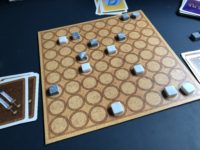
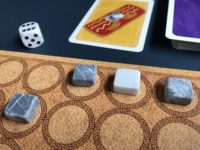
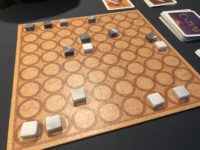


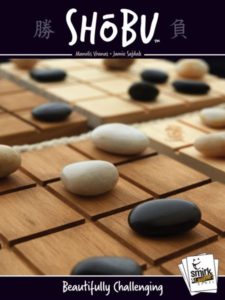
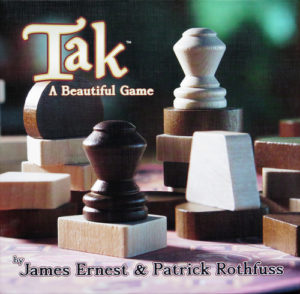
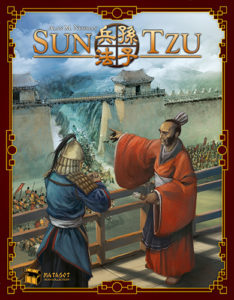

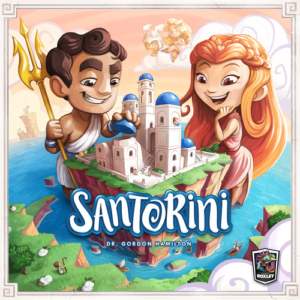
Sam says
I rather like how Capere combines the feel of classic abstract games (right down to the appearance) with the tantalising card flip at the start of a turn. Sure, the cards can bite you on the bum, and for the zero-sum optimizers amongst us that can be frustrating: you don't ever miss a turn in chess. But it's fun. While the varied-value movement cards and the Gods top-load the odd game with some swingy luck, they can also serve as a sort of mitigator; a way for a less-shrewd player to come back from weaker positions. It's both more interesting and more fun than checkers, and whilst it's perhaps not up there with the best abstracts ever, this unassuming little thing will reward repeated visits.